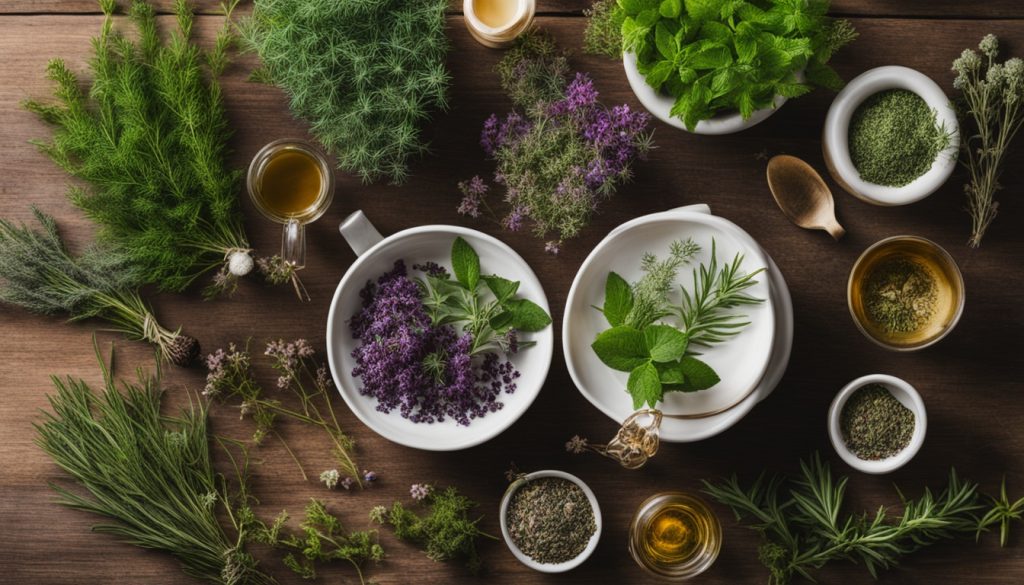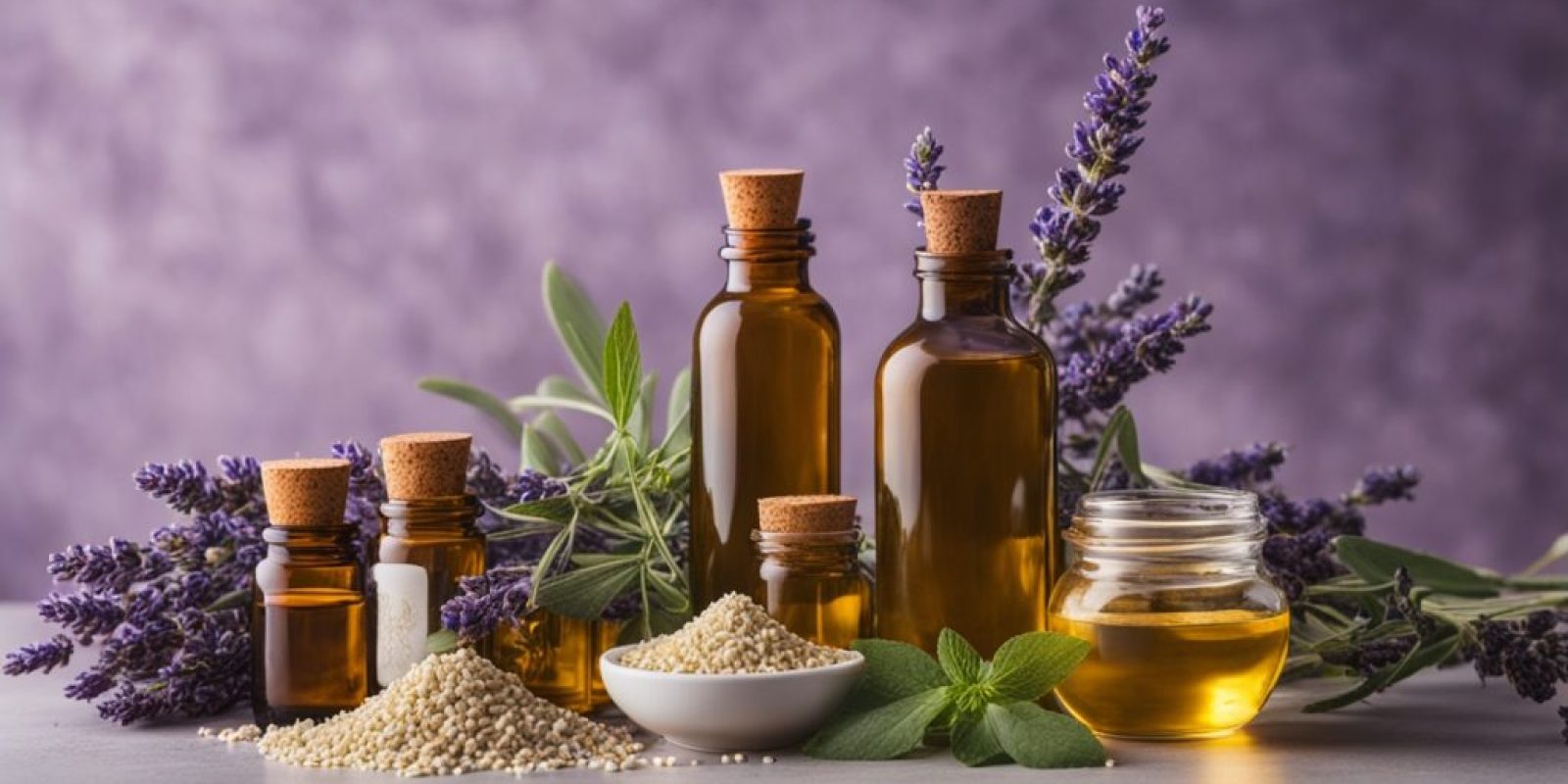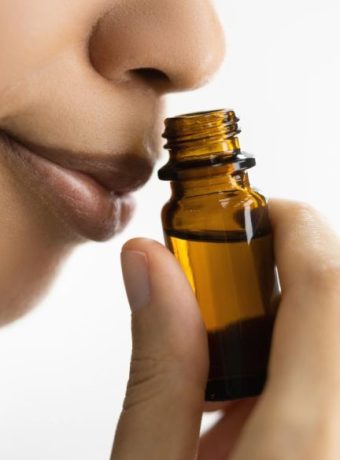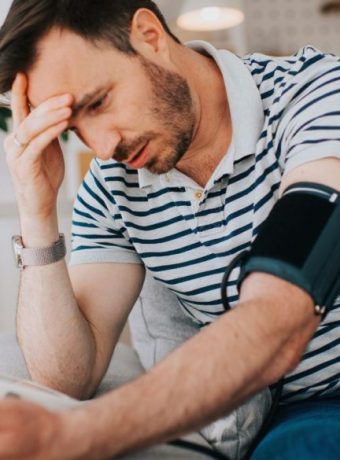Do you often feel anxious and want to find natural ways to calm your mind? Anxiety can be tough, affecting how you think, feel, and even your body.
While medicines and therapy can help, many people also look to supplements for extra support.
In this article, we’ll explore some of the best supplements for anxiety, how they work, and how they can help you feel more relaxed.
Key Takeaways
- Supplements like magnesium, omega-3 fatty acids, probiotics, and various herbs can help reduce anxiety.
- It’s important to talk to a doctor before starting any new supplements.
- Combining supplements with a healthy lifestyle can make them more effective.
What is Anxiety and Its Symptoms?
Anxiety is a mental health condition marked by ongoing feelings of worry, fear, and anxiety.
These feelings can make it hard to do everyday activities.
What Does Anxiety Do to Your Body?
Anxiety isn’t just in your head; it affects your whole body.
When you’re anxious, your body goes into “fight or flight” mode, releasing stress hormones like cortisol and adrenaline.
These hormones prepare you to deal with danger, but they can cause problems if you feel anxious too often.
Physical Symptoms of Anxiety
Anxiety can cause many physical symptoms, such as:
- Faster heartbeat
- Tense muscles
- Stomach problems
- Feeling tired
- Headaches
Knowing these symptoms can help you understand and manage your anxiety better.
Types of Anxiety Disorders
There are different types of anxiety disorders.
Examples include:
- Generalized anxiety disorder (GAD)
- Social anxiety disorder (SAD)
If you have generalized anxiety disorder (GAD), you might feel:
- Restless
- Difficulty concentrating
- Difficulty in sleeping
- Tired
- Easily annoyed
- Aches
- Stomach problems
Social anxiety disorder, also called social phobia,
It can make you scared of other people watching you or judging you.
You might feel very self-conscious or avoid looking directly at people.
Conventional Treatment of Anxiety and Their Side Effects
Doctors often use medicines to help with anxiety disorders, like antidepressants and benzodiazepines.
These drugs can work, but they also have risks.
Some people might feel suicidal, have trouble sexually, or become dependent on drugs.
Because of these risks and the high number of people with anxiety, many are looking for other ways to cope.
They are now interested in natural and complementary methods as alternatives to traditional treatments.

Complementary and Alternative Medicine
In recent decades, complementary and alternative medicine (CAM) has become more popular.
It offers a natural way to treat conditions like anxiety.
People are using holistic healthcare, natural anxiety treatments, herbs, and supplements more and more.
They want to know if plant-based and herbal remedies can help with anxiety.
And many choose natural supplements and mixed healing methods over regular medications.
Advantages of Dietary and Herbal Supplements

Lots of people like natural supplements since they may cause less harm.
The risks of taking pharmaceutical anxiety drugs are pushing people to take herbs and dietary supplements.
As people look for health solutions that are tailored to them, interest in complementary and alternative medicine is growing.
This is especially true for natural anxiety treatments.
Best Supplements for Anxiety
The science behind natural anxiety supplements is growing.
Many ingredients commonly found in Ayurvedic herbs, including plant-based compounds, show promise as alternative treatments and medicinal purposes for anxiety.
These natural options can help reduce anxiety symptoms and disorders.
1. Magnesium
Magnesium is a mineral that your body needs to function properly.
It helps keep your nerves and muscles working well.
How Does Magnesium Help with Anxiety?
Magnesium can help reduce anxiety by calming your nervous system.
It helps control neurotransmitters, which send messages in your brain and body.
Foods rich in magnesium, like leafy greens, nuts, seeds, and whole grains, can help you feel calmer.
You can also take magnesium supplements if needed.
How much magnesium do you need?
You can get magnesium from foods or supplements.
Ask your doctor how much magnesium you need to help with anxiety.
2. Mushroom Supplements
Mushroom supplements are natural stress relievers made from different types of mushrooms that are known for their health benefits.
These mushrooms can help improve your immune system and support your mental health.
How Do Mushrooms Help with Anxiety?
Certain mushrooms, like Reishi and Lion’s Mane, have been found to reduce stress and anxiety.
They contain compounds that can help improve your mood and relax your mind.
How to Use Mushroom Supplements
You can find mushroom supplements in various forms, like powders, capsules, and teas.
Make sure to choose high-quality products and consult your doctor to find the right type and dosage.
3. Omega-3 Fatty Acids
Omega-3 fatty acids are healthy fats your body needs but cannot make alone.
They are found in fish like salmon and are important for brain health.
How Do Omega-3s Help with Anxiety?
Studies show that omega-3 supplements can help reduce anxiety by lowering inflammation and improving brain function.
How to Get More Omega-3s
You can eat more fish or take omega-3 supplements.
Always talk to your doctor about the right amount for you.
4. Probiotics
Probiotics are “good” bacteria that help keep your digestive system healthy.
They are found in foods like yogurt, sauerkraut, and kefir.
How do probiotics help with anxiety?
The gut-brain axis is the connection between your gut and your brain.
Probiotics can improve gut health, which can help reduce anxiety symptoms.
How to use probiotics
You can eat probiotic-rich foods or take probiotic supplements to support your gut health and reduce anxiety.
5. Vitamin B Complex
The vitamin B complex includes several important vitamins for your brain and body.
How do B vitamins help with anxiety?
Vitamin B complex can help improve anxiety symptoms, mood, and sleep.
These vitamins help your brain function better and produce chemicals that regulate your mood.
How to Get Enough B Vitamins
You can get B vitamins from foods like meat, eggs, dairy, and whole grains, or take a B complex supplement.
6. CBD
Cannabidiol (CBD) from hemp has become popular for anxiety and depression. Yet, research on its anxiety benefits is mixed.
Some studies support its use, while others don’t. We need more clinical studies to confirm CBD’s place in anxiety treatment.

Herbal Supplements: Natural Remedies
Several herbs have been used for a long time to help with anxiety, including:
- Kava can reduce anxiety.
- Passionflower has calming effects.
- St. John’s Wort helps with mood and anxiety.
- Valerian Root is known for its calming properties.
Always talk to your doctor before starting any herbal supplements to ensure they are safe.
Here are some popular herbal supplements for anxiety:
1. Ashwagandha
Ashwagandha is an adaptogenic herb in Ayurvedic medicine.
It’s been researched for its role in reducing stress, resilience, and anxiety.
Researchers found that ashwagandha helps to lessen anxiety and stress, proving its worth as an anxiety management supplement.
2. L-Theanine
L-theanine is an amino acid found in green tea.
It’s known to promote relaxation and better sleep, helping with anxiety.
Studies indicate it can lower stress signs and improve anxiety feelings, making it a good option for anxiety relief.
3. Chamomile
Chamomile is well-known for its calming effects.
It has been studied for its role in lowering anxiety symptoms.
Research shows that chamomile might help reduce depression, worry, and tension, offering complementary treatment for people interested in natural supplements.
4. Lavender
Lavender’s scent is often linked to its calming effect.
Studies suggest that lavender might ease anxiety symptoms and improve sleep.
This makes it a flexible option for a holistic approach to anxiety management.
5. Lemon Balm
Lemon balm belongs to the mint family and has been used for years to ease anxiety.
It may reduce worry and excitability.
Some studies have shown it has a relaxing effect on the nervous system.
This makes it a good complementary treatment with natural supplements for those looking to tackle anxiety.
Wrapping Up
While supplements can help manage anxiety, they should not replace professional medical advice or treatment.
Supplements can be part of a healthy lifestyle that includes a balanced diet, regular exercise, mindfulness practices, and support from mental health professionals.
By adding the right supplements and making healthy lifestyle changes, you can take steps toward reducing anxiety and improving your overall well-being.
FAQ
What are the most effective natural supplements for reducing anxiety symptoms?
Several natural supplements have shown promise for anxiety. These include ashwagandha, L-theanine, magnesium, vitamin D, and vitamin B6. But, it’s crucial to talk to your doctor first. They can help you find the best option for you.
How do herbal remedies and dietary supplements compare to conventional anxiety medications?
Antidepressants and benzodiazepines can help with anxiety, but they have side effects and risks. Herbal remedies and supplements might be a natural choice. Yet, it’s important to use them under a doctor’s guidance.
What are the different types of anxiety disorders that can be treated with natural supplements?
Anxiety disorders come in many types, such as GAD, OCD, panic disorder, and social anxiety. Supplements might help with anxiety to a degree. The outcome depends on the type and seriousness of the disorder. Always consult a healthcare provider for the right treatment approach.
How long does it take for supplements to work for anxiety?
The time it takes for supplements to work can vary. Some people may notice improvements within a few weeks, while others may take longer. Be patient and consistent.
Are there any side effects of taking supplements for anxiety?
Most supplements are generally safe when taken as directed. However, some may have side effects or interact with medications. Always consult with a healthcare professional before starting any new supplement.




